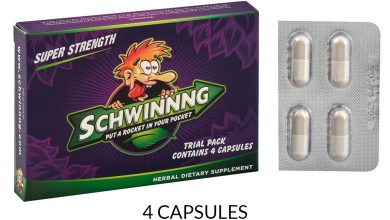Drugs To Avoid In Hypertrophic Cardiomyopathy

Genetic disorders can affect how medications work in several ways. One way is that genetic mutations can alter the way that the body processes medications, affecting how quickly or slowly drugs are metabolized and eliminated from the body. This can lead to either an ineffective or potentially harmful dose of medication.
Another way that genetic disorders can impact medication is through drug interactions. Certain genetic mutations may affect the body’s ability to break down and eliminate certain medications, leading to potentially dangerous drug interactions when taken with other medications.
Additionally, some genetic disorders can affect the way that drugs bind to specific receptors in the body, affecting the medication’s effectiveness.
What is Hypertrophic Cardiomyopathy?
Hypertrophic cardiomyopathy (HCM) is a genetic disorder that affects the structure of the heart muscle. In people with HCM, the walls of the heart’s main pumping chamber, the left ventricle, become thickened and stiff. This can interfere with the heart’s ability to pump blood efficiently and can cause a variety of symptoms and complications.
Some people with HCM may not experience any symptoms, while others may experience chest pain, shortness of breath, fatigue, dizziness, or fainting. HCM can also increase the risk of abnormal heart rhythms (arrhythmias) and sudden cardiac death, particularly in young people.
Hypertrophic cardiomyopathy (HCM) is a relatively common genetic disorder that affects the heart muscle. It is estimated to affect approximately 1 in 500 people worldwide, making it one of the most common inherited heart conditions.
HCM is caused by mutations in genes that affect the structure and function of the heart muscle. The condition can develop at any age, and its severity can vary widely. Some people with HCM may have no symptoms or only mild symptoms, while others may experience severe symptoms, such as chest pain, shortness of breath, and fainting.
HCM can also increase the risk of developing other heart-related conditions, such as arrhythmias, heart failure, and sudden cardiac arrest.
List Of Drugs To Avoid In Hypertrophic Cardiomyopathy
Certain medications can exacerbate the symptoms of HCM and increase the risk of dangerous complications. Therefore, it is essential to avoid or use these medications with caution in people with HCM. Here are some drugs to avoid in hypertrophic cardiomyopathy:
1. Beta-blockers: Beta-blockers are medications that slow down the heart rate and reduce the workload of the heart. They are commonly used to treat high blood pressure, angina, and heart failure. However, in people with HCM, beta-blockers can cause a dangerous drop in blood pressure, which can lead to fainting, dizziness, and even shock. In some cases, beta-blockers may worsen the symptoms of HCM, such as shortness of breath and chest pain.
2. Calcium channel blockers: Calcium channel blockers are medications that relax the blood vessels and reduce the workload of the heart. They are used to treat high blood pressure, angina, and certain heart rhythm disorders. However, in people with HCM, calcium channel blockers can cause the heart to contract more forcefully, which can lead to chest pain, shortness of breath, and abnormal heart rhythms.
3. Nitrates: Nitrates are medications that dilate the blood vessels and improve blood flow to the heart. They are used to treat angina and heart failure. However, in people with HCM, nitrates can cause a dangerous drop in blood pressure, which can lead to fainting, dizziness, and even shock.
4. Diuretics: Diuretics are medications that help the body get rid of excess fluid and salt, which can improve the symptoms of heart failure. However, in people with HCM, diuretics can cause a dangerous drop in blood pressure, which can lead to fainting, dizziness, and even shock.
5. Vasodilators: Vasodilators are medications that dilate the blood vessels and improve blood flow to the heart. They are used to treat high blood pressure and heart failure. However, in people with HCM, vasodilators can cause the heart to contract more forcefully, which can lead to chest pain, shortness of breath, and abnormal heart rhythms.
6. Inotropic agents: Inotropic agents are medications that increase the force of the heart’s contractions. They are used to treat heart failure. However, in people with HCM, inotropic agents can cause the heart to contract too forcefully, which can lead to chest pain, shortness of breath, and abnormal heart rhythms.
People with HCM should avoid or use these medications with caution, as they can exacerbate the symptoms of HCM and increase the risk of dangerous complications.
How To Safely Use Medications With Hypertrophic Cardiomyopathy
If you have hypertrophic cardiomyopathy it is important to work closely with your healthcare provider to manage your condition effectively. This includes using medications safely and effectively. Here are some tips for using medications with HCM:
1. Always inform your healthcare provider about your HCM: Be sure to tell your healthcare provider about your HCM and any symptoms you are experiencing. This information will help them select appropriate medications and adjust the dosages as needed.
2. Use medications as directed: Take medications exactly as prescribed by your healthcare provider. Do not skip doses or change the dosages without consulting your healthcare provider.
3. Monitor your symptoms: Pay close attention to your symptoms, such as chest pain, shortness of breath, dizziness, or fainting, and report any changes to your healthcare provider.
4. Avoid medications that may worsen your symptoms: Certain medications can exacerbate the symptoms of HCM and increase the risk of dangerous complications. Be sure to avoid or use these medications with caution, as recommended by your healthcare provider.
5. Get regular check-ups: Visit your healthcare provider regularly to monitor your condition and adjust your medications as needed.
6. Be aware of potential drug interactions: Some medications can interact with each other and cause adverse effects. Inform your healthcare provider about all the medications, supplements, and vitamins you are taking.
7. Know the side effects of your medications: Most medications have potential side effects, and some may be more common or severe in people with HCM. Be sure to discuss any side effects you experience with your doctor or healthcare provider.
8. Carry a list of your medications: Keep a list of all the medications you are taking and carry it with you at all times. This information will be important in case of an emergency or if you need to see a healthcare provider who is not familiar with your medical history.
People with HCM can use medications safely by working closely with their healthcare provider, using medications as directed, monitoring their symptoms, avoiding certain medications, and getting regular check-ups.





